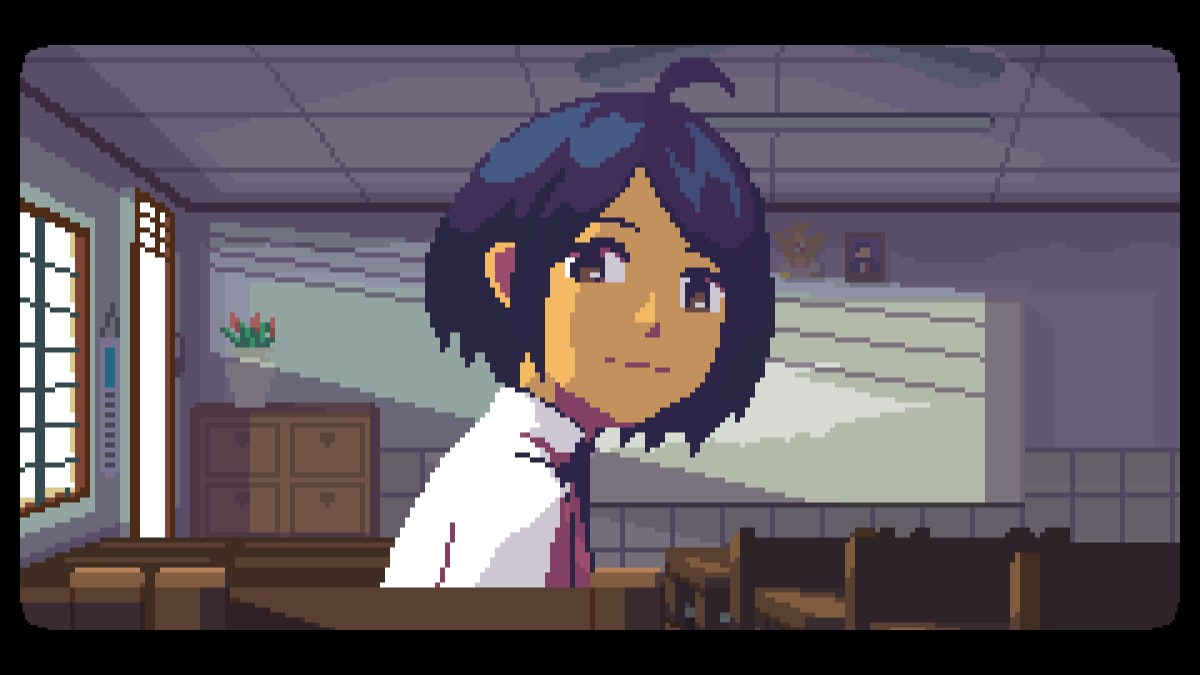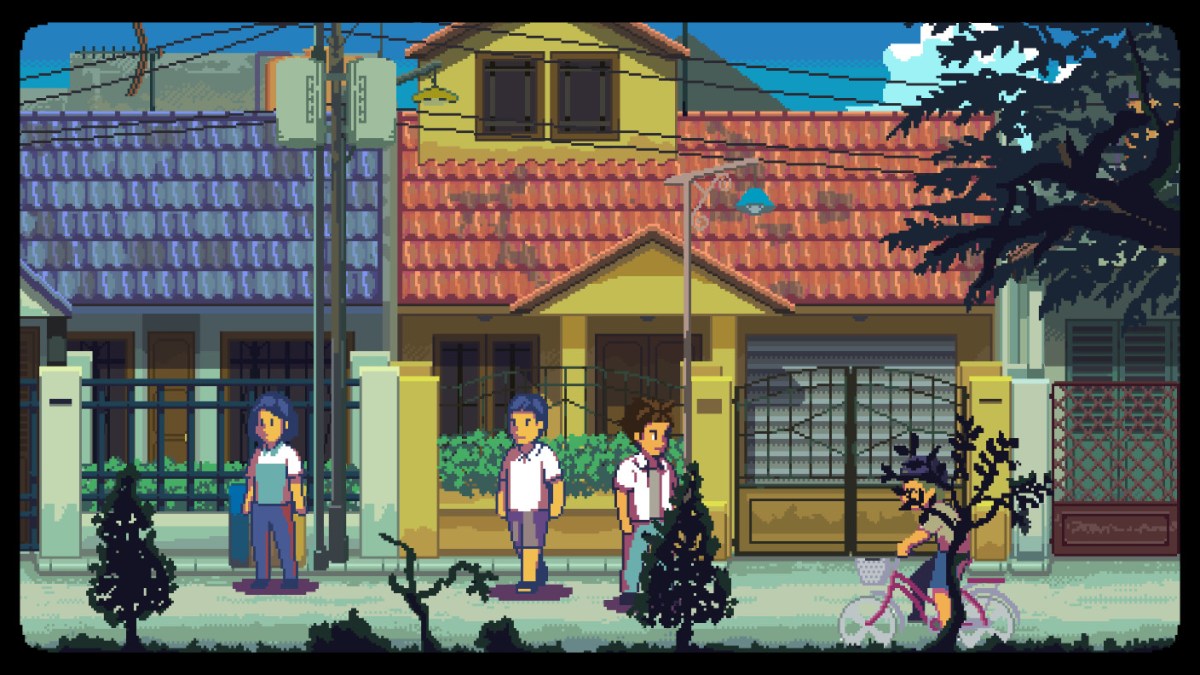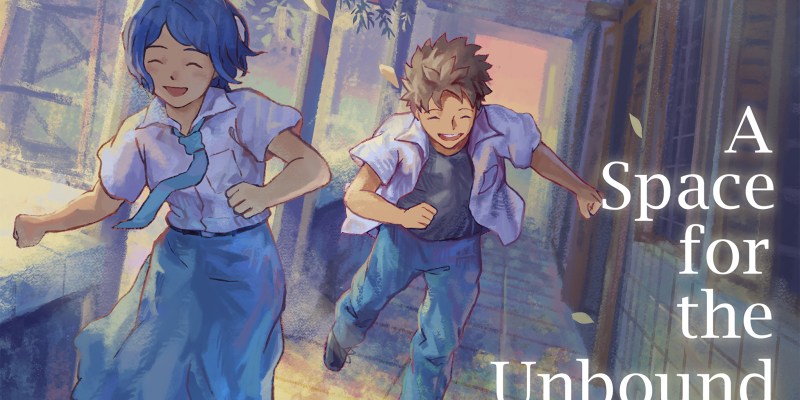This article contains spoilers for A Space for the Unbound.
A Space for the Unbound is a 2D-pixelated adventure about Atma, a young teen in an Indonesian town. As you follow him and his girlfriend Raya, you begin to mess with the laws of nature, space, and time as you try to fix the various issues plaguing the residents of your home. How do you do this? By entering their hearts via a magical red book and figuring out what plagues them. What starts out as a charming adventure becomes a cathartic and emotional story about trauma and timeless friendships.
The gameplay of A Space for the Unbound is varied and full of personality, much like the inhabitants of the town Atma and Raya are in. One moment you are in a “Hell’s Kitchen” segment, “helping” a pastry chef realize they shouldn’t try other culinary practices by sabotaging their potential “other selves,” and the next you’re helping a young teen, who sees himself as a monster, regain his humanity by fighting back against his inner demons. There is even a section where a son is becoming his father due to his issues with his father, and you have to remind this put-out child of who he really is.
Moments like these throughout A Space for the Unbound have cemented it not just as a “game of the year” contender for me, but as something far more important, a game that helped me reflect on myself and my own personal issues. A game like A Space for the Unbound does not come around often. Its treatment of trauma and how it can cause a cycle of inner turmoil is exemplary.

You see, about halfway through the game you come to realize that the town and the inhabitants are not real. Not only that, Atma is not a real person; he is a manifestation of Raya’s. He is a combination of memories and emotions that are trying to keep her from her own self-destructive impulses, as her mind begins to unravel after trying to commit suicide. His “battle” in the game is to help her move beyond the monsters of her past, to not destroy them, but to deal with them.
It’s a deeply moving expression of how to deal with the mental issues that plague everyone. I found myself brought to tears as I came to understand that Raya’s story is my story. She was bullied for being “weird,” for not going along with everyone, and then when she finally starts to go with the flow, she is shunned once more by her peers.
One of the most disturbing moments comes in the shape of Nirmala (a young Raya) literally splitting her psyche in two. She hates who and what she is, so she distances herself from what she was to become someone that she believes everyone will prefer — and that is how Raya is born. Sadly, her trauma does not stop there, and throughout the game, we learn the difficulties of trying to fake it to make it. It does a number on her perceived self-worth, which was already low. Once again I found myself resonating with this aspect of Raya / Nirmala.

When I was young I was not popular; if you look at my articles they will paint somewhat of a picture of what goes on in my head on a daily basis. In ‘90s Ireland I had a similar journey to that of Nirmala, coming close at times to crafting my own Raya. Whenever a summer break would come along, I swore I’d change my personality to better conform to those of my peers. For better or for worse, I would eventually return to my former self. I didn’t have the willpower of Nirmala when she reinvented herself as Raya. Ultimately for my own mental health, this was a good thing, as Raya internally is destroying herself. And only by moving past all this trauma will she be properly whole.
In some cases, it’s not even about forgiving; it’s about understanding that nothing can be done to change the past, no matter how much you want to. It’s regret, a feeling that crystallizes and can weigh a person down. I’ve best thought of this as a kind of black ichor in the pit of my stomach, and with Raya it is somewhat similar. She has a wound that is slowing her down, and only with Atma’s help does she ascend out of the pit she finds herself stuck in.
I don’t pretend to understand people’s feelings. I barely understand my own. However, A Space for the Unbound is perhaps one of the best pieces of media to tackle subjects such as self-harm, depression, and bullying. Through this unexpected therapy session, I came to better understand myself, and hopefully I’ll put some of the lessons I’ve learned into practice.
